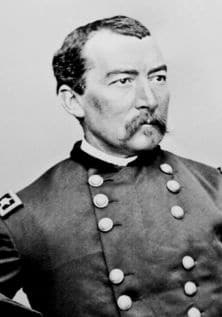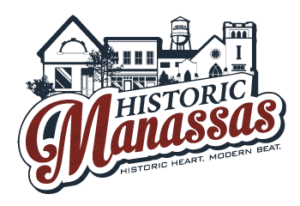
By Mike Crump
When delving into the annals of the American Civil War, a plethora of resources await—books, newspaper articles, Civil War magazines, videos, and museums. Yet, uncovering the stories of Hispanic Americans who enlisted in both the Federal and Confederate armed forces need a more determined search. Among these remarkable individuals, what about those who not only fought valiantly but received the highest recognition, the Medal of Honor?
The crucible of the Civil War marked the birth of the Medal of Honor, a distinction reserved for those displaying extraordinary valor amidst armed conflict. It is often a posthumous honor, celebrating acts of valor transcending the ordinary call of duty.
To date, the Medal of Honor has been awarded to sixty-one individuals of Hispanic heritage, with forty-two posthumously. Within this roster, three notable figures stand out as recipients during the American Civil War.
Joseph H. De Castro: A Flag Bearer's Valor
The first Hispanic American to receive this honor was Joseph H. De Castro. Hailing from Massachusetts, he enlisted in the 19th Massachusetts Infantry, a regiment comprised entirely of volunteers. De Castro's role was as a color flag bearer in Company I—a critical post serving as the rallying point during the chaos of battle.
The defining moment came at Gettysburg, Pennsylvania, on June 3, 1863, when Confederate forces launched Pickett's Charge against Major George Meade's Union position on Cemetery Ridge. Amidst the fray, De Castro engaged a Confederate flag bearer, capturing the colors of a Virginia infantry regiment. He dashed back to his unit and presented the captured flag to his commander, Colonel Arthur F. Devereux. This gallant act earned Joseph De Castro and six comrades the Medal of Honor in December 1864. (1 Wikipedia - Joseph H. De Castro)
De Castro's commitment persisted beyond the Civil War; he enlisted in the regular United States Army. Eventually, he passed away in 1892 in New York City, finding his resting place in a Newark, New Jersey cemetery.

Juan Ortega and Phillip Bazaar: Navigating the Seas of Valor
Among the distinguished recipients, John (Juan) Ortega, an immigrant from Spain, surfaces as the first Hispanic American sailor to be honored. Joining the United States Navy in 1863, Ortega served on the U.S.S. Saratoga. This vessel played a vital role in the blockade of Southern ports, notably Charleston, South Carolina. The blockade aimed to stifle the Confederate Government's access to foreign goods and military supplies.
Engaged in land raids along the Southern coast, the crew of the U.S.S. Saratoga inflicted substantial damage on Confederate infrastructure and forces. John Ortega's unwavering dedication led to his receipt of the Medal of Honor in August 1864. Remarkably, the ship's commander, George Musalas Colvocoresses, hailed from Greece. (2 Wikipedia - List of Hispanic Medal of Honor Recipients)
The second Hispanic American sailor recipient was Phillip Bazaar, an immigrant from Chile, South America. Serving aboard the U.S.S. Santiago de Cuba, Bazaar sailed under the command of Rear Admiral David Porter. In 1864, as part of a combined Army and Navy campaign, Bazaar acted as a courier between Rear Admiral Porter and the Army commander during the effort to capture Fort Fisher—an instrumental defense post safeguarding Wilmington, North Carolina.
In recognition of their exceptional service, Seaman Bazaar and five fellow crew members received the Medal of Honor in June 1865. (3 Wikipedia - List of Hispanic Medal of Honor recipients)

Confederate Recognition and Beyond
While the Union bestowed the Medal of Honor upon deserving Hispanic American soldiers and sailors, the Confederate government enacted a law in 1862 allowing for medals honoring courage. Yet, these medals were never issued during the conflict. General Robert E. Lee personally held that individual acts of bravery were more meaningful than tangible medals.
The Medal of Honor awarded to these Hispanic soldiers transcends time and reminds us that courage is universal, and valor knows no language or ethnicity. It is a beacon that shines across history, calling upon us to recognize and honor the sacrifices of those who may have been forgotten for a time.
In the end, the stories of Joseph H. De Castro, Juan Ortega, and Phillip Bazaar inspire us to look beyond the surface, to seek out the stories that may have gone unnoticed, and to appreciate the diverse mosaic of bravery that made up the American Civil War. Through their deeds, these heroes beckon us to remember that in the midst of conflict, the human spirit can rise to unprecedented heights, transcending the boundaries that might otherwise divide us.
(4 Identifymedals.com “The Confederate Medal of Honor: History, Facts, and Recipients”).





